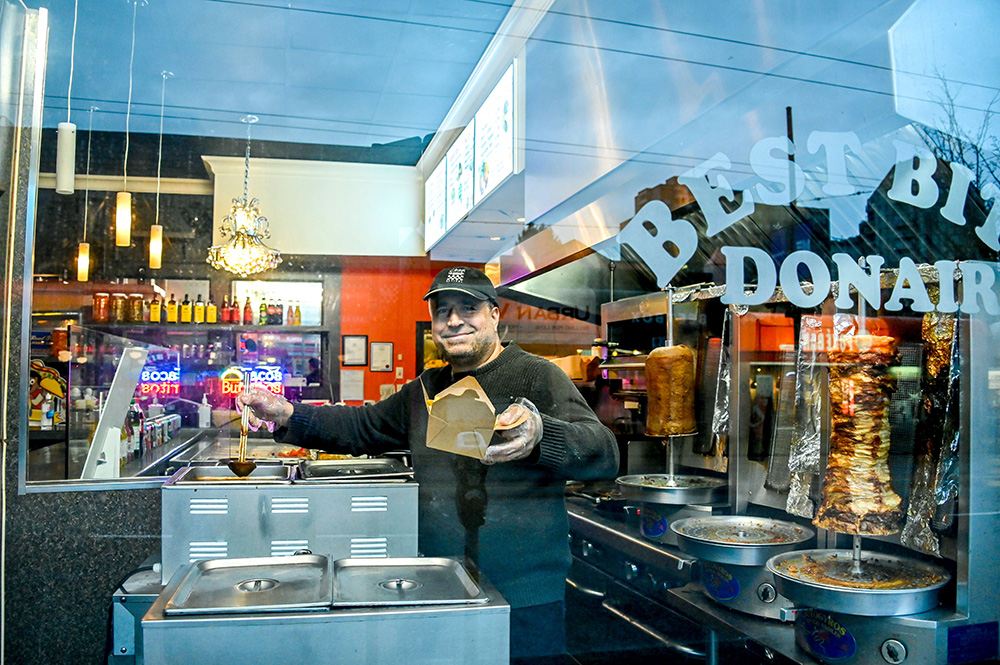With COVID-19 disrupting local cultures and economies, many people are asking what the future will hold: How can we afford to live? What will be our jobs? Will we ever get out of debt? In Vancouver, as in many North American cities, such questions are thrown against a familiar vision that once tantalized.
For decades our political and corporate leaders have insisted Vancouver should become a “world class” city with a global brand of glittering high rises, George Jetson transit systems, and job growth in tech, bio-tech and finance.
But even before the virus hit, a growing chorus of critics said this version of the future would sow wealth divisions and make the economy less resilient.
For example, Toronto’s urban futurist Richard Florida, who in 2002 became famous for his book The Rise of the Creative Class, touting the power of young tech entrepreneurs to power up a local economy, reversed course. In 2017 he published a second book, The New Urban Crisis, saying that unfortunately his “creative class” was actually supercharging inequality in globally-attractive cities — driving a big income wedge between high-tech workers and their Uber drivers and baristas.
Ooops.
Florida’s conversion seems relevant to Vancouver. So far the region’s ability to foster a high-tech bio-tech bonanza has been limited. But its “success” in attracting global real estate capital has been astonishing. One result: Vancouver is second only to Hong Kong in the gap between local wages and housing costs.
What’s the alternative?
Allow me to introduce you to a group of young European economists, many from the University of Manchester in England, who promote what they call a “Foundational Economy.” Their work provides a trenchant critique of fixations that still guide Vancouver’s leaders. Namely, on attracting mobile capital and industries that can locate anywhere on the globe.
This, say the foundational economists, leads to serious negative consequences. In competing for footloose global employers, governments are prone to support massive taxpayer-funded infrastructure investments while enthusiastically cutting corporate taxes and lowering top marginal tax rates. All driven by the rationale that the arrival of new high-paying jobs will benefit their constituents who will, in the end, reward them with their votes.
Cutting ribbons on shiny modern icons pays off politically. But, according to these theorists (and in line with the views of both Richard Florida and inequality of wealth economist Thomas Piketty), such pandering to nation-hopping enterprises ends up increasing tax burdens on average taxpayers while undercutting their wages. The jobs of those average citizens merely become more precarious at the same time their wealth is transferred up the economic ladder.
A better path? Start by changing our conventional way of measuring economic growth, they say. Present models favour market consumption and global investment of all kinds. This bias undercuts the importance of “foundational activities.” Those include sectors that provide universal services (water, sewer, energy, health care, education, etc.) that are tied tightly to local populations and not “vagrants" like high-tech. The types of people employed are nurses, hairdressers, waiters, public works employees, yoga teachers, bus drivers, food service workers, carpenters, etc.
In this analysis, all policies should be guided by measuring and enhancing the capital value of basic infrastructure and the cultural and economic value of the local service economy. Do that, say the foundational economists, and you are less likely to get the economic inequalities that Florida now decries.
For decades prior to this plague event, the Vancouver “Booster Class” has countered this way of looking at our social and economic fabric by constantly promoting our region as a “world class” metropolis. By which they meant capable of outcompeting other really nice places vying to win the world’s mobile capital. Vancouver Mayor Kennedy Stewart even made this the theme of his inauguration address. Vancouver has scrambled to please Amazon, Facebook and other tech giants, wrongly conflating their missions of “disruptive innovation” with the public good.
One manifestation of this back-to-the-future thinking: elected and business leaders in both Surrey and Vancouver have clamoured for billions spent developing “innovation corridors.”
Vancouver’s vaunted innovation corridor is the Broadway Corridor starting at Commercial Drive and running 13 kilometres to UBC. A large chunk of the total subway bill of $8 billion would pay for a tunnel under the forests of Pacific Spirit Park and the low-density neighbourhood of Point Grey. The goal is vaguely described: To “unlock the constrained potential” that awaits by moving knowledge workers a bit faster around the city. This utopian vision is presented in a report prepared by KPMG for the City of Vancouver and UBC.
As then Vancouver mayor Gregor Robertson said of an earlier version by KPMG in 2013: “This study identifies that by not having rapid transit through this corridor to UBC, what is currently a powerhouse of jobs will actually suffer and be choked off from the opportunity.”
Surrey is marketing its own innovation corridor on a stretch of King George highway between the new city hall and Surrey Memorial Hospital. Premier John Horgan’s Oct. 7 press release takes on faith that “creating an innovation corridor in Surrey and up the Fraser Valley will create good jobs, attract talent, reduce commute times and raise the standard of living. Working with our partners, we will create an innovation hub where companies and talent will cluster, supporting our goal of a strong, sustainable economy that benefits the entire province.”
Horgan’s jobs minister Bruce Ralston echoes such claims. The Surrey corridor, he said, “will help develop the innovations of tomorrow in sectors such as transportation and logistics, medical research, advanced design and materials testing.” Part of the package will be a Quantum Algorithms Institute at Simon Fraser University’s Surrey campus. The new centre for developing quantum computing, he said “will train future data scientists who will attract companies worldwide, bringing significant benefit to B.C.’s economy.”
Algorithm programmers equipped with quantum computers may be cool. But the arrival of the plague has shown us that the guy who stocks the grocery shelves is ten times more important, and having our own supplies of the basics, like paper surgical masks, should be a priority.
Perhaps now is the time to question governments pouring more tax money into bids to attract new global players that may in the end make the region more expensive for average people. Perhaps we should instead be demanding a new framework for B.C.’s economy.
Start by acknowledging these points:
More than 90 per cent of current employment here is in the foundational economy, and that whatever success we achieve in attracting high tech and bio-tech will have limited benefit and large potential harm.
Our local economy is nearly self-supporting.
Current and future jobs largely will be focused on providing necessary local services on the one hand and public utilities (education, health care, public safety, utility infrastructure) on the other.
We might expand our sense of what constitutes infrastructure to include housing (our biggest current problem to be sure), as do other advanced democracies.
Finally, be extremely careful about unbalancing our infrastructure expenditures in the misguided belief that highly expensive infrastructure (e.g. subways to UBC) will serve the common good by catalyzing global economic development investment. The evidence seems to indicate the opposite. Such projects accelerate wealth and class divides and favour the wooed newcomers, rather than enhance the health, safety and welfare of our current citizens.
It is said that “one should never let a crisis go to waste.” To still pretend we can inhabit a happy high-tech Tomorrowland would be to waste the chance this pandemic has given us to get serious about strengthening the fine-grained foundational economy upon which our futures truly rest. ![]()
Read more: Local Economy, Labour + Industry, Science + Tech
















Tyee Commenting Guidelines
Comments that violate guidelines risk being deleted, and violations may result in a temporary or permanent user ban. Maintain the spirit of good conversation to stay in the discussion.
*Please note The Tyee is not a forum for spreading misinformation about COVID-19, denying its existence or minimizing its risk to public health.
Do:
Do not: